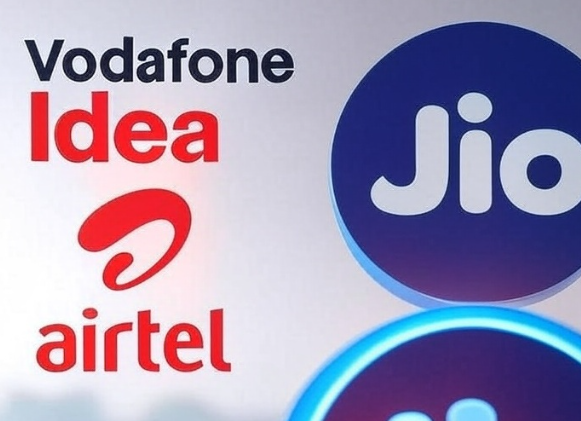
“What’s the worth of a tiny bowl, and what’s the worth of the soup it holds?” This old Hindi saying perfectly captures the current situation of one of India’s once-renowned telecom giants—Vodafone Idea (Vi). Once famous for its iconic advertising campaigns and massive subscriber base, the company is now facing serious financial troubles, declining market share, and weakening investor sentiment.
Recently, HSBC slashed its target price for Vodafone Idea, reflecting deepening concerns over the company’s future. The revised target price is ₹5.90, down from the previous ₹6.50. Alongside this revision, HSBC assigned a “Reduce” rating to the stock, which essentially means investors should start trimming their holdings. There are several reasons behind this downgrade. Vodafone Idea is currently burdened with high levels of debt. Despite its performance, its current stock valuation appears excessively high. More importantly, there have been significant delays in capital investments, particularly in upgrading network infrastructure and expanding 5G services. These factors have severely hampered the company’s ability to compete in the market.
In contrast, HSBC has maintained a “Buy” rating for both Bharti Airtel and Reliance Industries. For Bharti Airtel, the price target remains unchanged at ₹2,100, citing strong structural growth and clear growth drivers. Reliance Industries, which currently houses the entire Jio business since Jio is not yet listed separately, also saw a slight upward revision in its target price from ₹1,580 to ₹1,590. This increase is attributed to rising free cash flow from its telecom subsidiary Jio. These developments indicate that Vodafone Idea’s struggles are directly benefitting Airtel and Jio, who continue to capture more market share.
Vodafone Idea’s subscriber market share has declined from 21 percent in the fiscal year 2021–22 to just 17 percent in 2024–25. This erosion clearly illustrates the company’s waning presence in the Indian telecom space. A major reason for this decline is the lack of sufficient investment in network expansion and adoption of new technologies. While its competitors are pushing forward aggressively, Vodafone Idea finds it increasingly difficult to raise capital from the markets, further delaying its recovery efforts.
A critical insight from the HSBC report is about Vodafone Idea’s dependence on seven key telecom circles. Around 50 percent of its revenue comes from these circles. In comparison, Bharti Airtel and Jio derive only 25 to 29 percent of their revenues from the same regions. This means Vodafone Idea is far more vulnerable in these areas, and any weakness or delay in investment could drastically hurt its revenues. On the other hand, if Airtel and Jio continue expanding aggressively in these circles, it would further erode Vodafone Idea’s market standing.
Looking ahead, Vodafone Idea has initiated a capital expenditure cycle that is expected to continue through the fiscal year 2024–25. If successful, it might help arrest the ongoing erosion in its subscriber base. However, even a slight delay in executing these investment plans could give Airtel and Jio an even greater edge, making it harder for Vi to recover. HSBC also notes that any slowdown in Vodafone Idea’s expansion in the seven key telecom circles would be quickly capitalized on by its rivals.
Despite all these concerns, Vodafone Idea’s stock closed at ₹7.7, gaining 2.17 percent. It continues to be among the most actively traded stocks in the market. This high trading volume is primarily driven by retail investors who remain hopeful of a turnaround. Many believe that the stock might become a “multi-bagger” someday, and that a miracle might still be possible. While this optimism is admirable, it also highlights the speculative nature of current investments in the company.
In conclusion, Vodafone Idea is at a crossroads. The company has a challenging road ahead, marked by financial constraints, competitive pressure, and investment delays. While some investors remain hopeful of a revival, the ground realities suggest that without immediate and substantial capital infusion and aggressive investment in infrastructure, Vodafone Idea could fall even further behind. For now, as HSBC’s report indicates, the outlook remains uncertain and tilted to the downside. This is a cautionary tale in the ever-competitive Indian telecom market.
Disclaimer: This article is for informational purposes only and does not constitute financial advice. Investors are advised to do their own research or consult a financial advisor before making any investment decisions.




